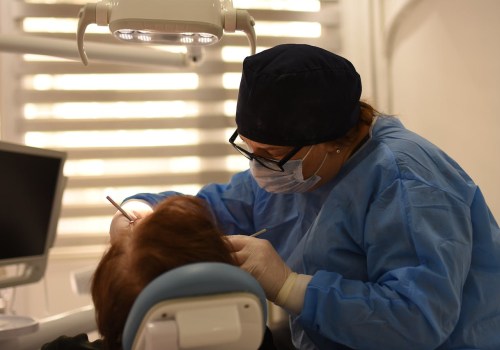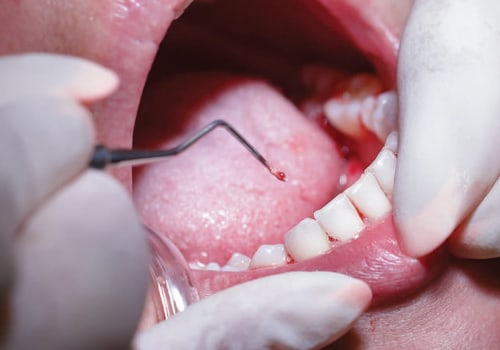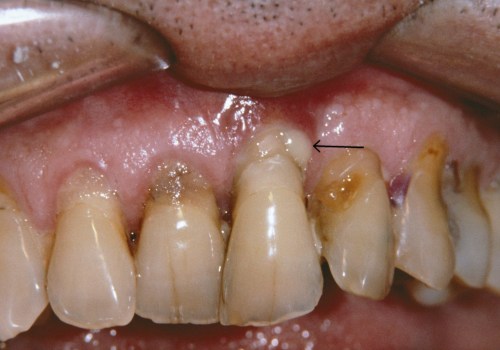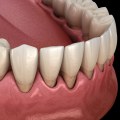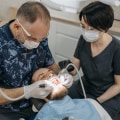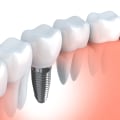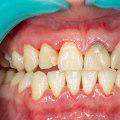Periodontitis is not curable, but it can be managed with the right care and treatment. Talking to your dentist or periodontist about a personalized treatment and maintenance plan is the best way to manage the condition. A periodontist is a dentist who specializes in gum disease, and they can work with your dentist or hygienist to create a plan that works for you. The goal of the treatment is to thoroughly clean the pockets around the teeth and avoid damaging the surrounding gum tissue and bone.
The chances of successful treatment are greater if, in addition, a good daily oral care routine is followed, health conditions that may affect dental health are controlled, and tobacco use is stopped. The first step in treating periodontal disease is a conservative, non-surgical approach called root scraping and smoothing (SRP). A dentist or dental hygienist provides this treatment by scraping and removing plaque and tartar from teeth and root surfaces with instruments designed for this purpose. Then, they soften any roughness in the roots to prevent bacteria from easily accumulating again.
Sometimes, this procedure can take more than one visit. Administering a local anaesthetic can help avoid any discomfort. After this process, the gums will heal and reattach to the healthy, clean surfaces of the teeth. In a few weeks, your dentist will evaluate your healing and decide if you need to continue with treatment. Fortunately, you can reduce this risk with advanced gum disease treatment.
Through surgical or non-surgical procedures, you can reverse the effects of periodontitis and restore your healthy smile. The only real cure for periodontal disease is to remove all of your teeth and replace them with a complete set of teeth supported by implants. When periodontal disease is diagnosed, it can't be reversed with medications or nonsurgical treatments. Modern treatments for the disease are often related to prevention and treatment rather than providing a cure. The only way to completely get rid of periodontal disease is to extract the infection at its source by extracting the teeth. The bacteria cannot live, so periodontal disease leaves the body.
The teeth will then be replaced with a full set of teeth supported by implants. Antibiotic treatment, such as metronidazole or amoxicillin, may be recommended if you have ANUG. You will usually have to take them for three days. The dentist can assign a stage and grade to periodontitis based on the severity of the disease, the complexity of the treatment, risk factors, and health. But today, with so many successful periodontitis treatment options available for advanced gum disease, tooth loss doesn't have to happen.
The periodontist may apply local antibiotics during a cleaning procedure, but oral antibiotics can also help get rid of infections under the gums. If you have gingivitis and they don't remove plaque or tartar (hardened plaque) from your teeth, the condition can worsen and cause periodontitis. In addition to implementing healthy lifestyle habits, such as reducing sugar consumption and activating a thorough daily oral hygiene routine, your dentist will recommend that you closely monitor your periodontal health with more frequent checkups and oral care appointments. Depending on the severity of your periodontitis, your dentist may refer you to a specialist in the treatment of periodontal disease called a periodontist. If left unchecked, the mouth can develop gingivitis or a more serious gum infection, periodontitis (periodontal disease).
We offer surgical and non-surgical treatments for advanced periodontal disease and can recommend a periodontal maintenance plan that is right for you. Although it's a highly treatable condition, the type of treatment for periodontitis you receive depends on the severity of your gum disease. In addition to meticulous home care, including brushing and flossing your teeth at least twice a day, your periodontist can prescribe a mouthwash or recommend professional periodontal cleanings in the office to detect areas of concern and prevent major gum problems before they start. After receiving treatment for periodontitis, it's important to keep your gums healthy through regular periodontal maintenance. Although periodontal laser therapy is still in its infancy, it shows promising results for eligible patients.


